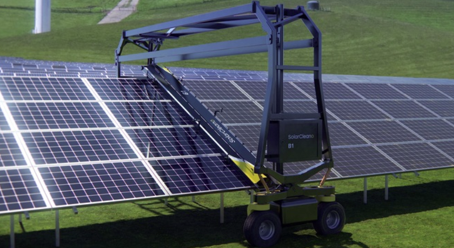The Essential Guide to Solar Panel Cleaning: Methods, Benefits, and Risks
Solar energy is a valuable investment, providing clean and renewable power to homes and businesses. However, maintaining your solar panels’ efficiency requires regular cleaning, as dust, dirt, and other debris can significantly impact their performance. In this guide, we’ll explore the different methods of solar panel cleaning, the advantages and disadvantages of each, and why regular cleaning is essential for maximizing energy output and prolonging panel life.
The Importance of Regular Solar Panel Cleaning
Solar panels convert sunlight into electricity, but any dirt buildup on the panels can block sunlight and reduce efficiency. According to studies, dirty panels can lead to a 5-30% drop in energy generation, depending on the level of dirt accumulation. Regular cleaning can help ensure maximum energy output and extend the lifespan of your solar investment.
Impacts of dirty solar panels:
Reduced Power Generation: Accumulation of dust, bird droppings, and other debris reduces the amount of sunlight reaching the cells.
Shortened Lifespan: Dirty panels are more prone to overheating, which can cause permanent "hot spots" and reduce their lifespan.
Increased Fire Hazard: Dirt buildup can trap moisture, leading to corrosion and increasing the risk of electrical faults and fire.
Different Methods of Solar Panel Cleaning
1. Manual Cleaning
Pros: Cost-effective and suitable for small residential systems.
Cons: Labor-intensive, time-consuming, and involves potential safety risks for the cleaner.
2. Wet Cleaning
Pros: Provides thorough cleaning and can effectively remove tough stains.
Cons: High water consumption and the risk of water residue impacting panel efficiency.
3. Dry Cleaning
Pros: Water-saving and suitable for arid regions.
Cons: May not remove all stains effectively and can risk scratching panels if done incorrectly.
4. Nano-Coating
Pros: Reduces dirt buildup and the frequency of cleaning.
Cons: High initial cost and requires periodic reapplication.
5. Robotic Cleaning (IFBOT X3)
Pros: Fully automated, waterless cleaning that is safe, efficient, and reduces labor costs.
Cons: Initial investment, but provides long-term savings and efficiency benefits.
Why Choose IFBOT X3 for Solar Panel Cleaning?
IFBOT X3 offers a cutting-edge solution for solar panel maintenance, providing a waterless and automated cleaning option that helps to maintain peak panel efficiency without the need for manual intervention. This robotic solution is ideal for both residential and commercial solar installations, especially in areas where water conservation is a priority.
Interested in a sustainable and efficient cleaning solution? Contact us today to learn more about how IFBOT X3 can help you maximize your solar panel efficiency while reducing maintenance costs.

















